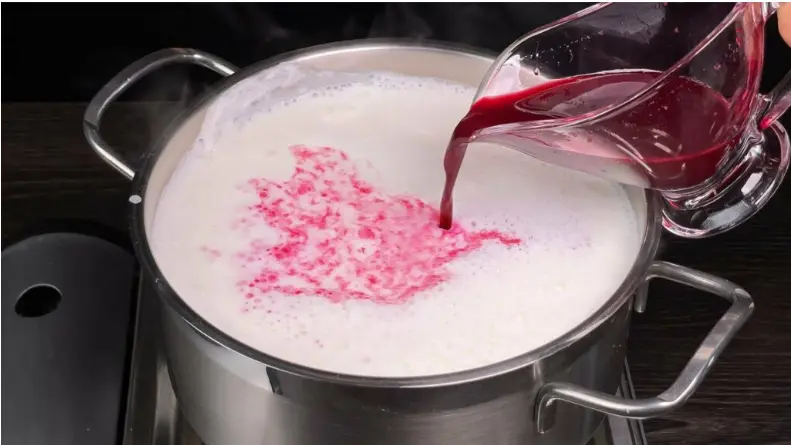Gas buildup in the stomach is a common culprit behind abdominal bloating, a condition many people find uncomfortable and embarrassing. Despite being a natural consequence of digestive processes, the social stigma attached to passing gas in front of others makes it seem dreadful. However, flatulence, or passing gas, is a normal bodily function that occurs around 10 times per day on average.
When carbohydrates from fiber-rich foods like fruits, vegetables, beans, peas, and whole grains ferment in the small intestine due to colon bacteria, gas is produced, leading to stomach bloating. This condition, called distention, makes the stomach swell.
Causes of Gas and Stomach Bloating
Several factors can contribute to gas and bloating, including:
- Gulping or Swallowing Air: This often happens unknowingly while eating or drinking.
- High Levels of Bacteria in the Small Intestine: Disruption in the normal balance of gut bacteria can lead to excess gas production.
- Premenstrual Syndrome: Hormonal changes during the menstrual cycle can cause bloating.
- Stress: Psychological stress can affect gut function and lead to bloating.
- Consumption of Carbonated Drinks: The bubbles in carbonated beverages can accumulate in the stomach and cause bloating.
- Anorexia: Eating disorders like anorexia nervosa can disrupt normal digestion.
- Overeating: Consuming large meals can overwhelm the digestive system.
- Smoking: Smoking can lead to swallowing air, which contributes to gas buildup.
- Chewing Gum or Candies: Chewing gum and candies can cause you to swallow air, leading to bloating.
- Water Retention: Certain medical conditions and medications can cause water retention and bloating.
- Constipation: When stool remains in the bowel for too long, it can cause bloating and gas.
- Peptic Ulcer: This can lead to bloating and discomfort.
- Certain Medicines: Some medications can cause bloating as a side effect.
Additionally, certain medical conditions such as ovarian cancer, celiac disease, inflammatory bowel disease, ascites and tumors, irritable bowel syndrome, dumping syndrome, and pancreatic insufficiency can also contribute to bloating.
Symptoms of Gas and Stomach Bloating
Symptoms of gas and bloating may include:
- Reduced appetite
- Bad breath
- A coated tongue
- Abdominal cramps
- Spasms
- Belching
- Burping
- Stomach pain
- Flatulence
- Shortness of breath
- Lower back pain
- Diarrhea
Traditional Remedies for Gas and Bloating
Several traditional remedies can help alleviate gas and bloating. One approach is to eliminate fizzy drinks, carbohydrates, and salty foods from your diet. Some foods, such as wheat, stone fruits, rye, garlic, and onions, are known to trigger bloating in some individuals.
Natural Remedies for Treating Gas and Bloating
Here are ten natural remedies that can help relieve gas and stomach bloating:
- Fennel Seeds: Fennel seeds can act as a digestive aid and mouth freshener. You can chew fennel seeds after meals or prepare fennel tea by steeping them in hot water.
- Peppermint: Peppermint contains menthol oil, which can relieve symptoms of irritable bowel syndrome and prevent gastrointestinal spasms. Chewing fresh peppermint leaves or drinking peppermint tea can help.
- Ginger: Ginger contains gingerols and shogaols, active compounds that can relieve digestive issues, including flatulence and abdominal pain. You can consume ginger tea or freshly grated ginger before meals.
- Chamomile Tea: Chamomile tea can relax the digestive tract and relieve flatulence and gastrointestinal irritation. Drink chamomile tea a few times a day for relief.
- Caraway Seeds: Caraway seeds have antispasmodic, antimicrobial, and carminative properties. Chewing caraway seeds or drinking caraway tea can help prevent gas and bloating.
- Turmeric: Turmeric contains curcumin, which promotes bile production and aids digestion. Drink a mixture of turmeric, cinnamon, honey, and milk for relief.
- Asafetida: Asafetida has antispasmodic and anti-flatulent effects, making it effective for relieving intestinal gas and indigestion. You can consume asafetida with warm water or mix it with ripe banana.
- Cumin: Cumin has anti-inflammatory, antiseptic, and antibacterial properties. Drinking cumin water can improve digestive function and prevent gas and bloating.
- Cinnamon: Cinnamon can relieve abdominal pain and prevent bloating by reducing gastric acid release. Drink cinnamon milk or tea for relief.
- Anise Tea: Anise tea can calm the muscles of the digestive tract and aid digestion. It also possesses carminative effects that help eliminate gas.
Prevention of Gas Formation and Bloating
Making some dietary and lifestyle changes can help prevent gas formation and bloating:
- Eat slowly and chew food properly to aid digestion.
- Reduce intake of fizzy drinks like carbonated beverages and soda.
- Sit down while eating to avoid swallowing air.
- Eliminate foods that cause gas issues.
- Exercise regularly, especially after meals, to improve digestion.
- Quit smoking to prevent swallowing air.
- Increase fluid intake to prevent constipation.
- Avoid chewing gums containing sorbitol.
- Avoid drinking through straws, which can cause you to swallow air.
- Refrain from talking while chewing to reduce air intake.
By incorporating these natural remedies and lifestyle changes, you can effectively manage and prevent gas and stomach bloating. Remember, while occasional bloating is normal, persistent or severe bloating may require medical attention. Always consult a healthcare professional if you experience chronic or severe symptoms.



